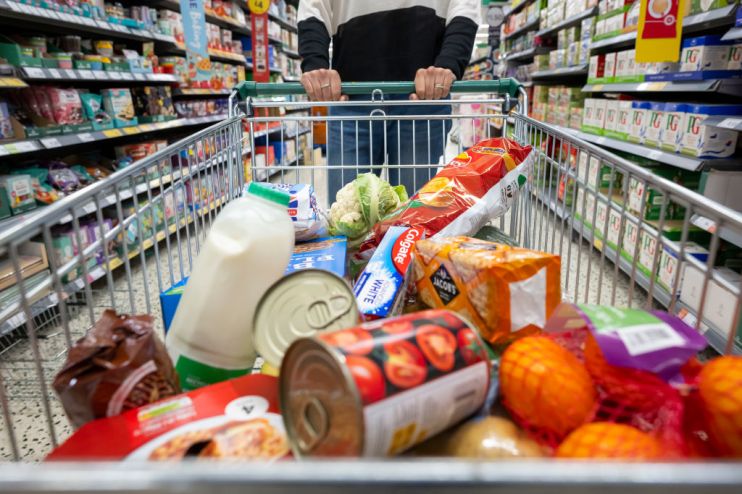L&G report: Inflation is widening gap between rich and poor with ‘pay cut’ for 95 per cent of UK households

Legal & General’s Rebuilding Britain Index (RBI) found that 95 per cent of working UK households have experienced a real terms pay cut over the last 12-months as rising inflation makes its way felt into nearly all households.
UK inflation has surpassed forecasts and stayed in the double digits and the rate of price increases jumped to 10.4 per cent in February, up from 10.1 per cent in January, according to the Office for National Statistics (ONS).
The report found that the cost of living crisis has hit the poorest households hardest, deepening existing economic inequalities.
L&G’s chief executive Sir Nigel Wilson called for a renewed focus on levelling up and a more targeted approach from Government on how public and private financing can be used to achieve more ambitious, sustainable, and longer-term change where it is needed most.
The eighth instalment of L&G’s report found 99 per cent of lower income households – those with income of under £20,000 – had taken a real terms pay cut.
One in two households were concerned about being able to keep up with rent and mortgage payments over the next 12-months.
Over half (54 per cent) of UK households had reduced day-to-day spending in response – and a further 51 per cent expect it to decrease still further over the next year
The lowest income households in the UK are most likely to feel that their quality of life is declining 29 per cent versus only 13 per cent in the highest income households.
Energy efficiency and higher wage employment could help end cost-of-living crisis
L&G said long-term solutions were seen as key to solving the cost of living crisis, such as investment in energy efficient homes and offices – 59 per cent- and the creation of higher wage employment – 52 per cent – are the most attractive solutions to tackling the cost of living crisis.
Sir Nigel said: “Our research across 20,000 UK households exposes the stark choices that inflation is forcing on many people in Britain. Levels of employment continue to improve but real wages are lagging behind. It is particularly concerning to see that not only are the key RBI measures such as access to housing and healthcare stalling or falling nationwide, but that the cost of living pressures are widening the inequalities that the Levelling Up agenda is aiming to address.
“Recommitment from government on the policy itself is welcome news, as are the new and additional Budget devolution settlements. But this needs to be doubled down with ambition and collaboration to drive more private sector economic investment and modernise planning to produce a meaningful and lasting impact. Smaller individual projects, sprinkled across the UK, that are not joined up, are unlikely to be effective or efficient as they don’t address the underlying causes of regional and local inequalities. It is our belief that a more joined-up approach, through public-private sector partnerships will result in the type of impact that is really needed in the places that need it the most.”
How inflation is widening the wage gap
When surveyed on how household income has changed over the previous 12-months, only 5 per cent of those who took part in L&G’s survey said theirs had risen in line with or above inflation.
A further 19 per cent said it had increased below inflation, while 21 per cent had experienced a decline in income over this period.
This is hitting lower income communities the hardest, and widening the gap between the UK’s wealthiest and poorest households; only one per cent of those with £20,000 household income of under £20,00 had experienced an increase at or above inflation, while a third had experienced a pay cut.
Real terms pay changes per household income
| NET | Under £20,000 | £20,000-£39,999 | £40,000-£59,999 | £60,000-£79,999 | £80,000-£99,999 | £100,000+ | |
| Real term decrease | 95% | 99% | 97% | 95% | 88% | 91% | 83% |
| Real term increase | 5% | 1% | 3% | 5% | 12% | 9% | 17% |
How households have reduced their spending
| Type of goods / services | % decreased spend in the year |
| Consumer Goods (e.g. clothes, shopping) | 54 |
| Leisure Activity (e.g. cinema visits) | 50 |
| Tourism Activity (e.g. family holidays) | 49 |
| Birthdays & Christmas | 43 |
| Memberships (e.g. gym memberships) | 41 |
| Entertainment (e.g. Netflix subscriptions) | 36 |
Sir Nigel said L&G’s research showed that the inequalities in quality of life, the core measure that the levelling-up agenda is seeking to address, are continuing to widen.
While higher income households are strong in their beliefs that quality of life is improving, the same is not true of the UK’s poorest households. Only 25 per cent of those with a household income of under £20,000 feel that quality of life is improving, compared to 29 per cent who feel it is declining.
John Godfrey, director of Levelling-Up at Legal & General: “Legal & General has already invested billions and is continuing to invest in towns and cities across the UK, including Newcastle, Sunderland, Leeds, Sheffield, Manchester, Birmingham Oxford and Cardiff. This is part of our approach to inclusive capitalism – which takes a place-based approach to where and how we invest. These investments are having a demonstrable and positive impact on the communities in which we invest. Unlocking funding—be it private or public money – and working with local and national partners and organisations is crucial to strategically and sustainably address regional barriers to levelling-up.”